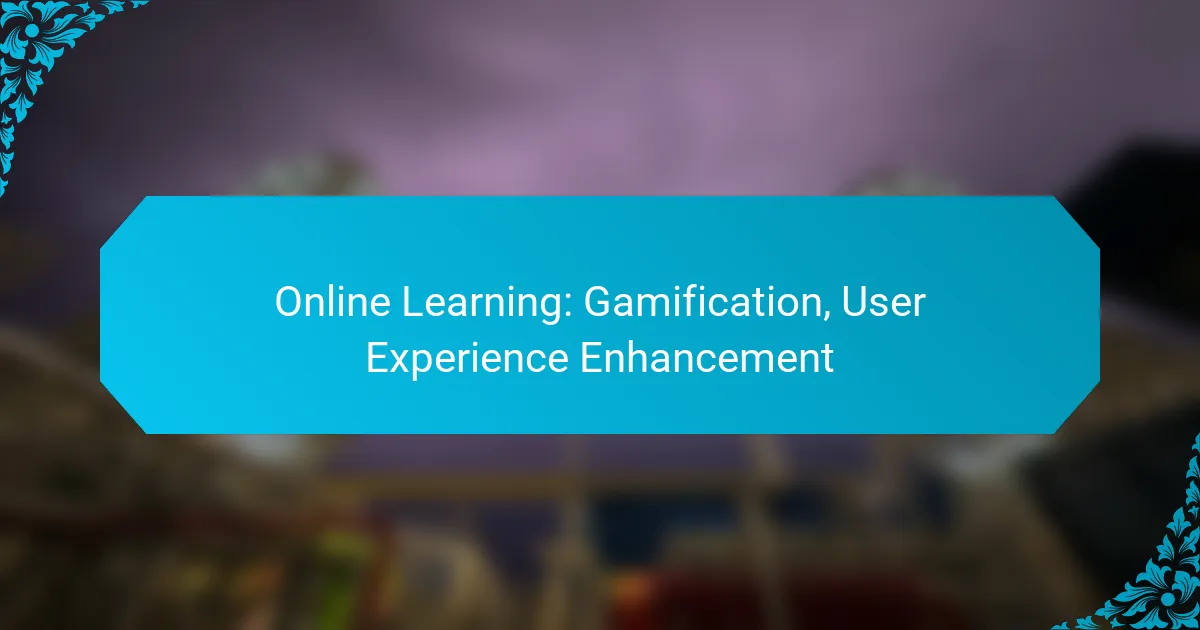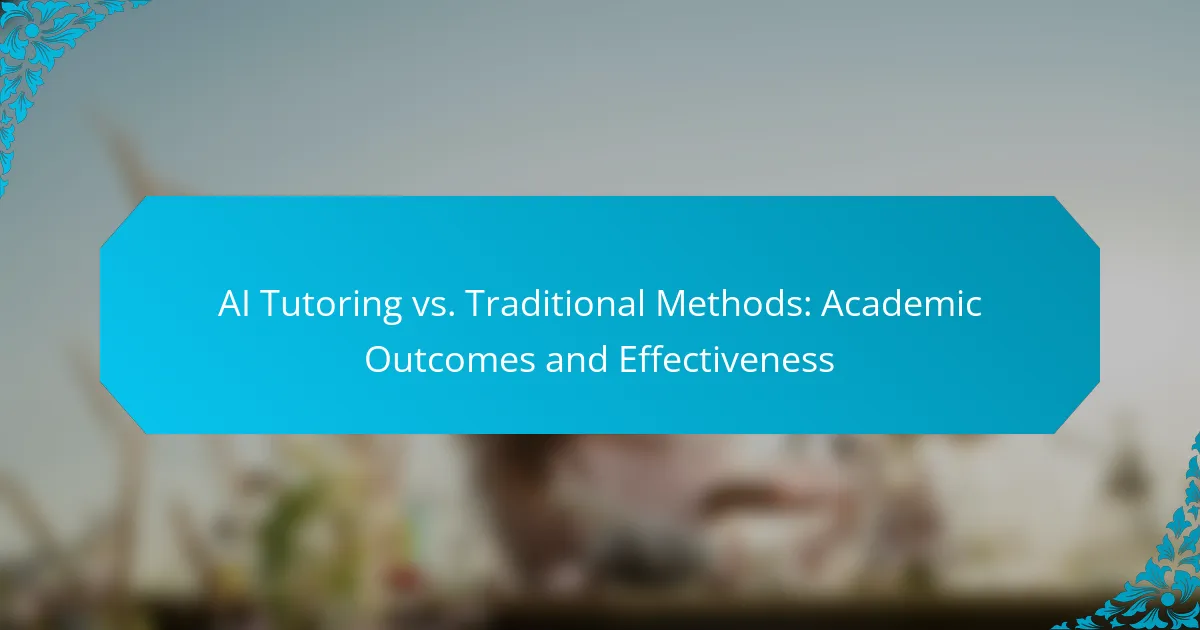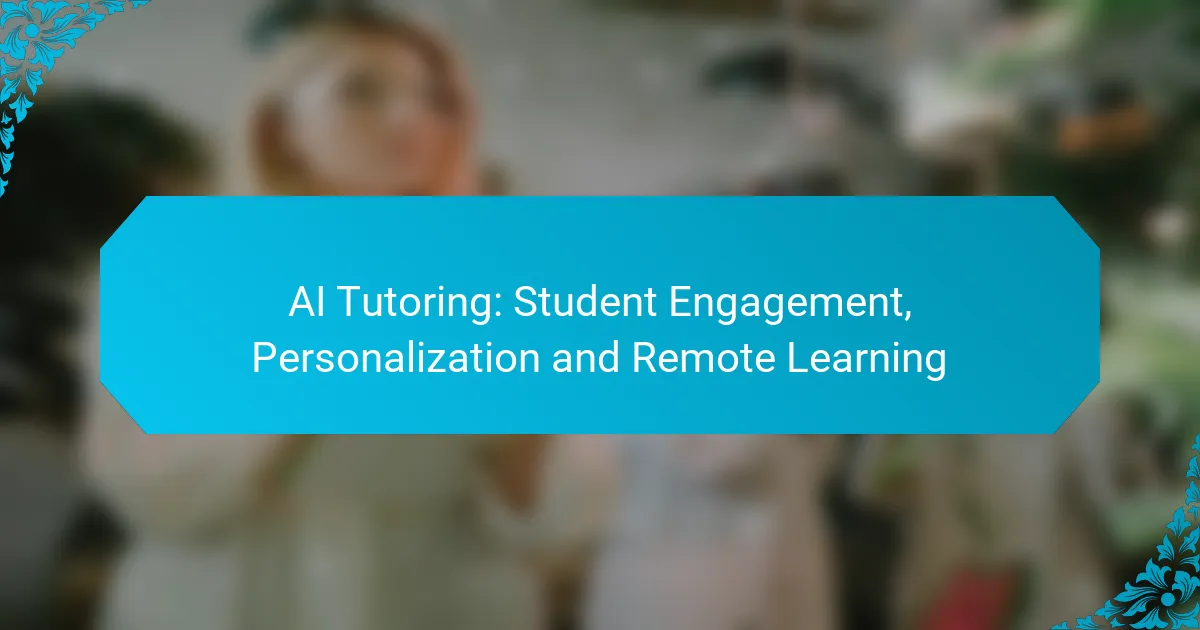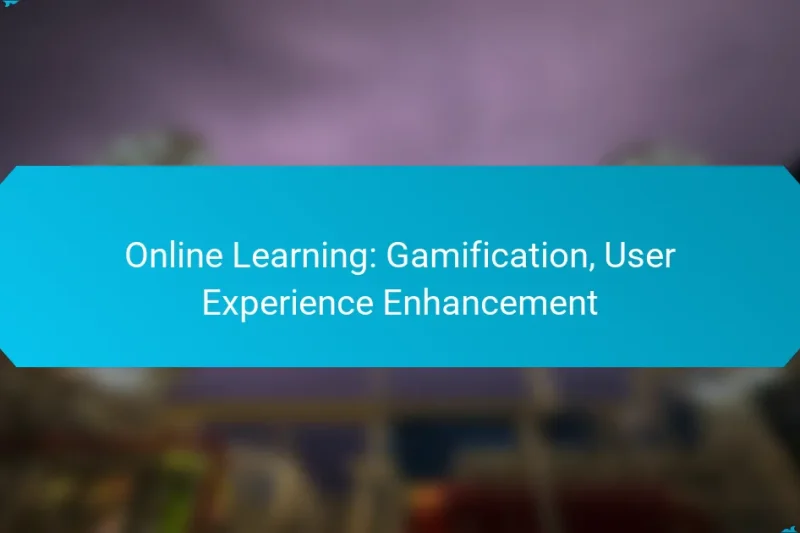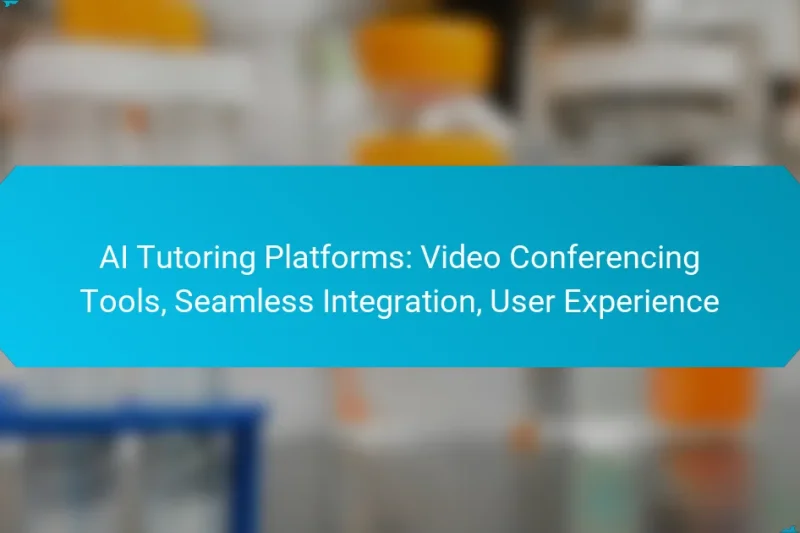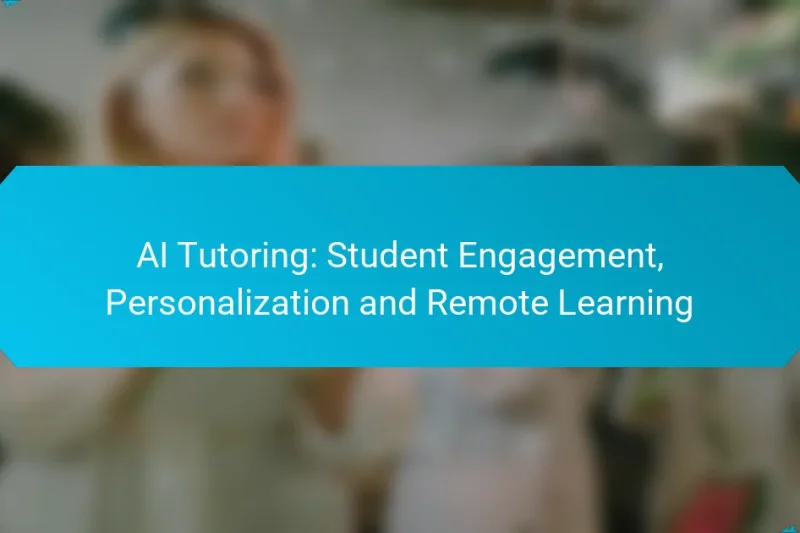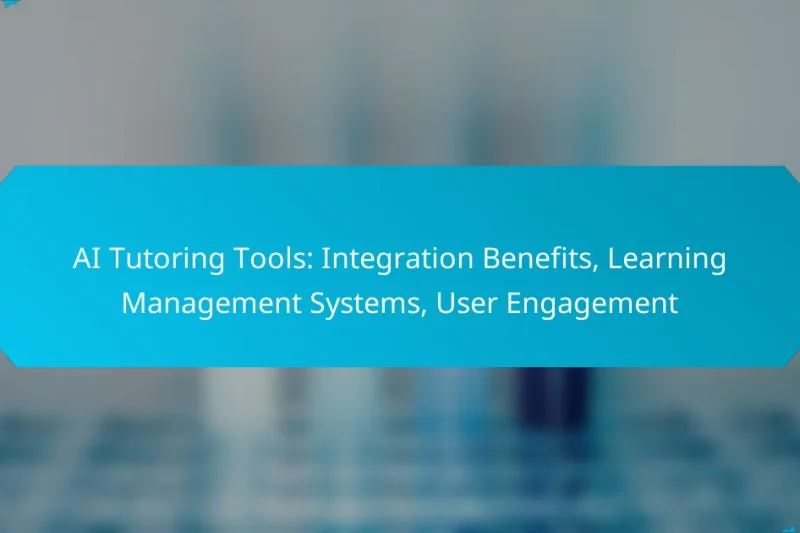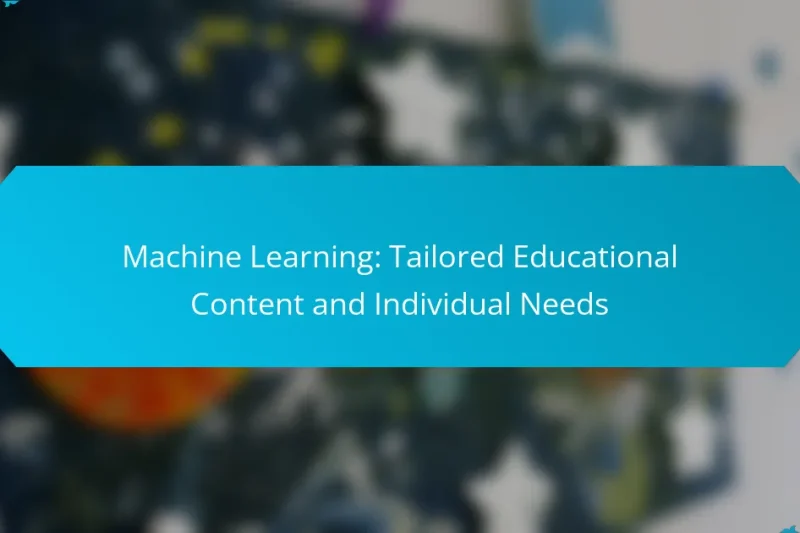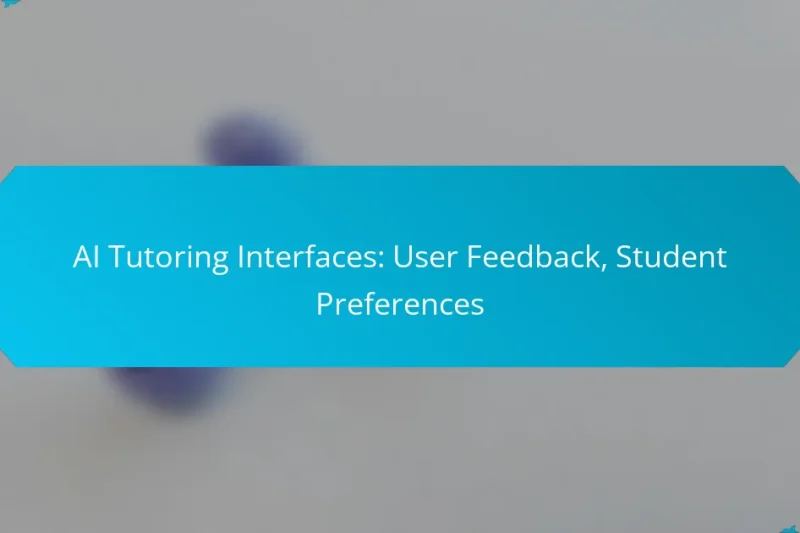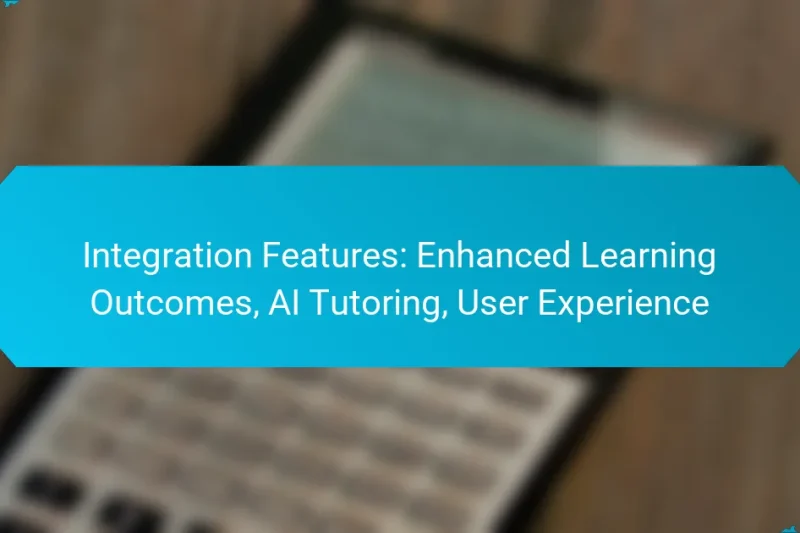AI tutoring platforms for young learners are designed to create engaging and interactive educational experiences that … AI Tutoring Platforms: User Interface Design, Young Learners, EvaluationRead more
AI tutoring and remote learning platforms are revolutionizing education by offering personalized experiences that cater to individual student needs. By leveraging advanced technology and interactive tools, these platforms enhance engagement and understanding across a variety of subjects. With flexible pricing models, they make effective learning accessible to a broad audience.
Online Learning: Gamification, User Experience Enhancement
Online learning is being transformed through gamification, which integrates game-like elements to create a more engaging … Online Learning: Gamification, User Experience EnhancementRead more
AI Tutoring vs. Traditional Methods: Academic Outcomes and Effectiveness
The debate between AI tutoring and traditional methods centers on their respective impacts on academic outcomes … AI Tutoring vs. Traditional Methods: Academic Outcomes and EffectivenessRead more
AI Tutoring Platforms: Video Conferencing Tools, Seamless Integration, User Experience
AI tutoring platforms are revolutionizing education by integrating video conferencing tools that enable real-time interaction between … AI Tutoring Platforms: Video Conferencing Tools, Seamless Integration, User ExperienceRead more
AI Tutoring: Student Engagement, Personalization and Remote Learning
AI tutoring revolutionizes education by enhancing student engagement through personalized learning experiences tailored to individual needs. … AI Tutoring: Student Engagement, Personalization and Remote LearningRead more
AI Tutoring Tools: Integration Benefits, Learning Management Systems, User Engagement
AI tutoring tools are revolutionizing education by offering personalized learning experiences, scalable support, and valuable data … AI Tutoring Tools: Integration Benefits, Learning Management Systems, User EngagementRead more
AI Tutoring Platforms: Personalized Learning Algorithms Comparison
AI tutoring platforms utilize advanced personalized learning algorithms to create customized educational experiences that cater to … AI Tutoring Platforms: Personalized Learning Algorithms ComparisonRead more
Machine Learning: Tailored Educational Content and Individual Needs
Machine learning is revolutionizing education by enabling the creation of personalized learning experiences that cater to … Machine Learning: Tailored Educational Content and Individual NeedsRead more
AI Tutoring Interfaces: User Feedback, Student Preferences
AI tutoring interfaces are increasingly recognized for their potential to enhance student engagement through personalized learning … AI Tutoring Interfaces: User Feedback, Student PreferencesRead more
Integration Features: Enhanced Learning Outcomes, AI Tutoring, User Experience
Integration features play a crucial role in enhancing learning outcomes by delivering personalized educational experiences that … Integration Features: Enhanced Learning Outcomes, AI Tutoring, User ExperienceRead more
What Are the Best AI Tutoring Platforms for Remote Learning?
The best AI tutoring platforms for remote learning provide personalized educational experiences, leveraging technology to enhance student engagement and understanding. These platforms typically offer a range of subjects and interactive tools to facilitate effective learning.
Khan Academy
Khan Academy is a free online resource that offers a wide array of subjects, including math, science, and humanities. Its AI-driven platform adapts to individual learning paces, providing personalized practice exercises and instructional videos.
Students can track their progress through a dashboard, making it easy to identify areas needing improvement. The platform is particularly beneficial for self-motivated learners seeking to supplement their education.
Coursera
Coursera partners with universities and organizations to offer courses across various disciplines, often featuring AI-enhanced learning tools. While many courses are free, obtaining certificates typically requires a fee, ranging from $30 to $200.
This platform is ideal for learners looking to gain skills in professional fields, as it offers courses from renowned institutions. Users can learn at their own pace, but should be aware of deadlines for assignments in certain courses.
Chegg Tutors
Chegg Tutors connects students with live tutors for personalized help in various subjects. The platform allows users to schedule sessions or receive instant help, making it flexible for different learning needs.
Pricing varies, with options for pay-as-you-go or monthly subscriptions. It's a good choice for students who need immediate assistance or prefer one-on-one interaction with a tutor.
Wyzant
Wyzant is a tutoring platform that matches students with qualified tutors based on their specific learning requirements. Users can browse tutor profiles, read reviews, and select tutors based on hourly rates, which can range from $20 to over $100.
This platform is beneficial for personalized learning experiences, allowing for tailored sessions that focus on individual student needs. However, students should consider the cost and ensure the tutor's expertise aligns with their goals.
VIPKid
VIPKid specializes in teaching English to children in China through one-on-one video lessons with native English speakers. The platform uses an engaging curriculum that incorporates interactive tools and games to enhance learning.
Teachers can earn competitive rates, and the platform is known for its structured approach, making it a good option for educators looking to teach remotely. However, it requires a commitment to a specific schedule, which may not suit everyone.
How Do AI Tutoring Platforms Enhance Learning?
AI tutoring platforms enhance learning by providing tailored educational experiences that adapt to individual student needs. These platforms utilize advanced algorithms to analyze performance and adjust content delivery, making learning more effective and engaging.
Personalized Learning Paths
Personalized learning paths allow students to progress at their own pace, focusing on areas where they need the most improvement. By assessing a learner's strengths and weaknesses, AI tutoring systems can create customized curricula that align with their specific goals.
For example, a student struggling with algebra may receive additional practice problems and resources tailored to that topic, while another excelling in reading comprehension can advance to more complex texts. This individualized approach helps maintain motivation and fosters a deeper understanding of the material.
Real-Time Feedback
Real-time feedback is a crucial feature of AI tutoring platforms, enabling students to receive immediate insights on their performance. This instant evaluation helps learners identify mistakes and correct them on the spot, reinforcing their understanding.
For instance, if a student answers a math problem incorrectly, the platform can provide hints or explanations right away, allowing the learner to grasp the concept before moving on. This timely intervention can significantly improve retention and reduce frustration.
Adaptive Learning Technologies
Adaptive learning technologies adjust the difficulty and type of content based on a student's ongoing performance. These systems continuously analyze data to ensure that the learning experience remains challenging yet achievable.
As students progress, the platform may introduce more complex concepts or switch to different subjects that complement their learning journey. This adaptability not only keeps students engaged but also helps them develop a more comprehensive skill set over time.
What Are the Costs of AI Tutoring Services?
The costs of AI tutoring services can vary widely based on the pricing model and features offered. Generally, users can expect to pay anywhere from a few dollars per session to monthly subscriptions that can reach into the hundreds.
Subscription Models
Subscription models typically charge users a fixed monthly fee for access to a range of tutoring services. These plans often include unlimited sessions, personalized learning paths, and additional resources. Prices can range from around $20 to $100 per month, depending on the platform's offerings and the level of customization provided.
When considering a subscription, evaluate the number of sessions you anticipate needing and whether the platform offers a trial period. This can help you determine if the service meets your learning needs before committing to a longer-term plan.
Pay-Per-Session Pricing
Pay-per-session pricing allows users to pay for individual tutoring sessions as needed. This model can be beneficial for learners who require occasional assistance or prefer not to commit to a subscription. Rates typically range from $10 to $50 per session, depending on the complexity of the subject matter and the tutor's expertise.
Before opting for pay-per-session pricing, consider how often you will use the service. If you find yourself needing frequent help, a subscription might ultimately save you money in the long run.
Free vs. Paid Options
Many AI tutoring platforms offer both free and paid options. Free services often provide limited access to features or a restricted number of sessions, while paid options unlock comprehensive resources and personalized support. Free trials can be a great way to assess the quality of a service before investing.
When evaluating free versus paid options, consider your learning goals and the level of support you require. If you are serious about improving your skills, investing in a paid service may provide the structured learning environment you need to succeed.
How to Choose the Right AI Tutoring Platform?
Choosing the right AI tutoring platform involves assessing your specific learning needs, reviewing user feedback, and evaluating the features offered. A well-suited platform can enhance your educational experience and help you achieve your goals effectively.
Assess Learning Goals
Start by clearly defining your learning objectives. Are you looking to improve in a specific subject, prepare for exams, or develop new skills? Understanding your goals will help you select a platform that aligns with your educational aspirations.
For example, if your aim is to master a language, look for platforms that specialize in language learning and offer tailored resources. If you need help with math, choose a platform that provides comprehensive math tutoring and practice problems.
Evaluate User Reviews
User reviews can provide valuable insights into the effectiveness and reliability of an AI tutoring platform. Check multiple sources, such as educational forums, app stores, and social media, to gather a well-rounded perspective.
Look for feedback on aspects like the quality of instruction, user interface, and customer support. Pay attention to recurring themes in reviews, as these can indicate strengths or weaknesses of the platform.
Consider Platform Features
Different AI tutoring platforms offer varying features that can enhance your learning experience. Consider functionalities such as personalized learning paths, interactive exercises, and progress tracking.
For instance, some platforms may offer live tutoring sessions, while others provide pre-recorded lessons. Evaluate which features are most important for your learning style and needs. A platform with a user-friendly interface and engaging content can significantly improve your motivation and retention.
What Are the Benefits of Remote Learning?
Remote learning offers numerous advantages, including flexibility, access to diverse resources, and cost savings. These benefits make it an appealing option for students and professionals seeking effective learning opportunities.
Flexibility in Scheduling
One of the primary benefits of remote learning is the flexibility it provides in scheduling. Learners can choose when to attend classes or complete assignments, allowing them to balance education with work or personal commitments.
This flexibility can be particularly advantageous for those with irregular work hours or family responsibilities. For example, a working parent can study during their child's nap time or after they go to bed, making education more accessible.
Access to Global Resources
Remote learning platforms often grant students access to a wealth of global resources, including online libraries, expert lectures, and interactive tools. This broad access enhances the learning experience by exposing students to diverse perspectives and materials.
For instance, a student in Bulgaria can participate in a seminar led by a professor from a prestigious university in the United States, enriching their understanding of the subject matter. Additionally, many platforms offer resources in multiple languages, catering to a global audience.
Cost-Effectiveness
Remote learning can be more cost-effective than traditional education, as it often eliminates expenses related to commuting, housing, and physical materials. Many online courses are available at lower prices, making education more affordable for a wider audience.
Students can save on costs by choosing online courses that fit their budget, with many platforms offering free or low-cost options. For example, a course that costs hundreds of euros in a classroom setting may be available online for a fraction of that price, making it an attractive choice for budget-conscious learners.
What Are the Challenges of AI Tutoring?
AI tutoring presents several challenges that can impact its effectiveness. Key issues include technology dependence, data privacy concerns, and the potential lack of personalized interaction.
Technology Dependence
AI tutoring relies heavily on technology, which can be a double-edged sword. While it offers flexibility and accessibility, it also means that students must have reliable internet access and compatible devices. Without these, the learning experience can suffer significantly.
Moreover, technical glitches or software issues can disrupt sessions, leading to frustration. Students and educators should ensure they have backup plans, such as alternative platforms or offline resources, to mitigate these risks.
It's crucial to regularly update software and hardware to maintain optimal performance. Establishing a routine for checking system requirements and troubleshooting common issues can help prevent interruptions during learning sessions.

